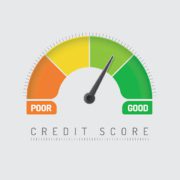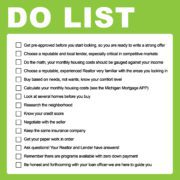How to Save for a Down Payment
Even if you don’t plan on buying a house for several years, you have probably started thinking about how to save for a down payment. Saving for a down payment means slowly setting aside small amounts of money and there are a number of ways to do that.
 1. Plan ahead. Before you begin saving for a down payment for a home, you first need to know approximately how much you will have to save. Plan to sit down with a mortgage lender who will let you know what you qualify for.
1. Plan ahead. Before you begin saving for a down payment for a home, you first need to know approximately how much you will have to save. Plan to sit down with a mortgage lender who will let you know what you qualify for.
In general, your housing expense should not exceed 29 percent of your monthly income. So, if your monthly income is $3,750 you can safely allocate $1,087 to your future house payment.
The $1,087 will include mortgage principal and interest, homeowners insurance, private mortgage insurance (PMI), real estate taxes and homeowners association (HOA) dues, if any. With interest rates at about 5 percent, this will put you into a mortgage loan ranging from $130,000 to $140,000.
To arrive at the amount that you can afford to pay for a house, you’ll have to add the down payment on top of that. So, if you are putting 5 percent down you would be looking at a sales price of about $135,000 to $145,000.
2. Determine your timeframe and budget. You will have to make some room in your budget to make sure that your savings are doable. Managing a tighter budget is a good way to prepare you for managing the type of tighter budget that home ownership requires.
3. Find the best way to save your down payment. Typically, since the money that you are investing will be used in a specific time frame, you should not save in a risk type investment (stocks). Instead, the money should be saved in a safe vehicle like your savings account or short-term CD.
4. Set up an automated savings plan. Set aside a certain percentage of or dollar amount of your regular pay to go directly into a savings account or money market account. This will remove the temptation and ability to spend the money for other purposes.
5. Windfall savings. You can shorten the savings period by including income tax refunds, gifts received, bonuses, and large commission checks and even the sale of personal assets into your down payment savings account.
If you have questions about down payments and costs associated with owning a home, please reach out to your trusted mortgage lender.












Leave a Reply
Want to join the discussion?Feel free to contribute!